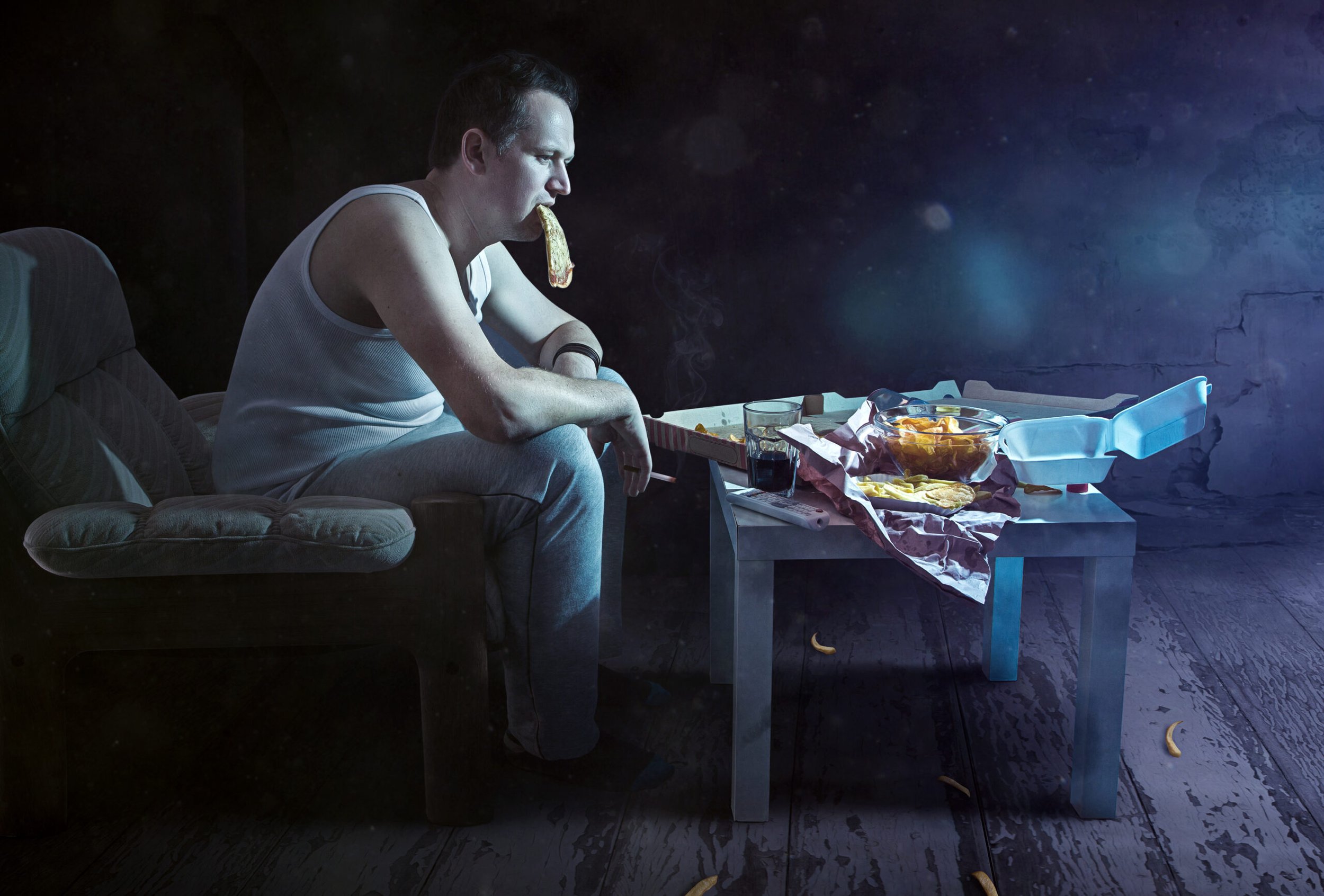When is Netflix & Chill a Healthy Coping Mechanism
Compartmentalizing, Escapism, Dissociating
All 3 of these terms can show up very similarly (when we’re not talking about a clinical diagnosis). Is it healthy to compartmentalize? A client asked me, how do I stop dissociating? I mean, is escapism a bad thing?
If you’ve hidden a part of, or even your whole self, in order to get through the present moment, you’ve experienced one or more of these responses.
My answer to “if it’s healthy,” is yes and no. We are so inundated, so overwhelmed, so undone that yes, please compartmentalize, dissociate, and escape when you need a break. If you are choosing this response you are empowered. If you find yourself losing hours of your day, mindlessly staring off or staring at Netflix, this may be a less than healthy reaction.
When is escapism a bad coping mechanism? What happens when you are dissociating? What does it mean when someone compartmentalizes?
If you didn’t knowingly and purposefully set your stress aside to stay focused, it’s likely you are reacting. This will eventually lead to unhealthy results. When you have nothing left but to escape from your life, that is a problem. Typically we escape, dissociate, or compartmentalize when we need to put something important aside to deal with our present moment. We are trying to cope:
Cope with our professional commitments.Cope with our financial pressures.Cope with our family and social expectations.Cope with our long-term dreams at dissonance with our current reality.Cope with environmental and political unrest.
And that’s all before breakfast.  Anytime a worry, threat, or uncertainty is introduced to this very delicate balance, it disrupts our ability to cope. We shove everything that’s emotionally or mentally concerning into a small box, and bury that deeper into ourselves, so we can get back to trying to balance it all. We do this because of fear:
Anytime a worry, threat, or uncertainty is introduced to this very delicate balance, it disrupts our ability to cope. We shove everything that’s emotionally or mentally concerning into a small box, and bury that deeper into ourselves, so we can get back to trying to balance it all. We do this because of fear:
We fear tipping the balance.We fear stepping up and facing the fear.We fear change.We fear rejection.We fear failure.We fear success.We separate ourselves from our experience, out of fear.
This feels like a huge relief, in the moment. There’s a reason we say, “no thanks, not right now!” In work, in business, and sometimes in our day-to-day, we simply don’t have the capacity to unpack every trauma and explore every trigger. But the problem isn’t the escapism, disassociation, or compartmentalizing — it’s ignoring a part of ourselves to the point that we show up as completely different people in different parts of our lives. Please take your space. Please take your time. But please be all of you. All of you in every situation.”The reason we escape is that we don’t know how to be all of us. We are afraid all of us isn’t enough, isn’t appreciated or valued, or simply isn’t wanted. But, how true is that? We start to automatically separate ourselves from our environments. We learn to do this over a long time with a lot of practice. This is why you feel so disconnected from your partner, family, friends, work, purpose, and happiness. It’s a habit. It doesn’t mean there’s anything wrong with any of it, especially you. But it does mean you need to integrate all parts of you and your experience.
Integration
Integration simply means making time for all of you. Acknowledge what is being set aside so you can focus and cope, and make a plan for when you will go back and unpack this box. Schedule time with your partner to revisit the argument or hurt feelings. Put time on your calendar to journal or lean into the trigger response you had at work. Create balance by actively exploring what’s missing.The real questions are:
Why do you feel like you need to hide?What happens if you share your true response?I can already hear you say, they’ll walk out on me or I’ll lose this opportunity — but is this a proven fact?When you can honestly, purposefully (and peacefully) bring your real concerns or issues to the table, and invite everyone to sit down and work through them?
You might be surprised about what solutions will be created, together.I am no psychologist, and this blog isn’t meant to offer clinical advice. If you or a loved one are suffering, or experiencing extensive dissociative experience, please speak to someone. I support visionary leaders in building their businesses and creating levels of success they’ve only dreamed about. This is not for the faint of heart, and when the world gets crazy it is easy to try and escape. When you face your fears, lean into what you’re resisting, and trust by exploring these emotions, you become a more resilient, impactful, and holistic leader. The type of leader even you want to follow. Curious how you can integrate all of you and become a visionary leader? Book a free strategy session to learn where you’re hiding and how to embrace all of you.


